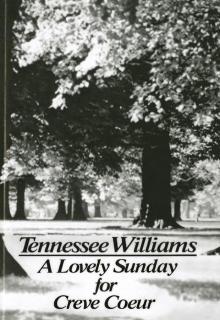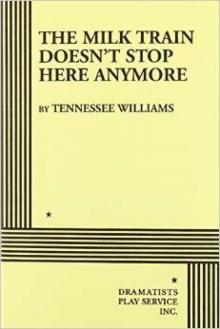
It is a warm June morning in the West End of St. Louis in the mid-thirties––a lovely Sunday for a picnic at Creve Coeur Lake. But Dorothea, one of Tennessee Williams’s most engaging "marginally youthful," forever hopeful Southern belles, is home waiting for a phone call from the principal of the high school where she teaches civics––the man she expects to fulfill her deferred dreams of romance and matrimony. Williams’s unerring dialogue reveals each of the four characters of A Lovely Sunday for Creve Coeur with precision and clarity: Dorothea, who does even her "setting-up exercises" with poignant flutters; Bodey, her German roommate, who wants to pair Dotty with her beer-drinking twin, Buddy, thereby assuring nieces, nephews, and a family for both herself and Dotty; Helena, a fellow teacher, with the "eyes of a predatory bird," who would like to "rescue" Dotty from her vulgar, common surroundings and substitute an elegant but sterile spinster life; and Miss Gluck, a newly orphaned and distraught neighbor, whom Bodey comforts with coffee and crullers while Helena mocks them both. Focusing on one morning and one encounter of four women, Williams once again skillfully explores, with comic irony and great tenderness, the meaning of loneliness, the need for human connection, as well as the inevitable compromises one must make to get through "the long run of life."
Read online













